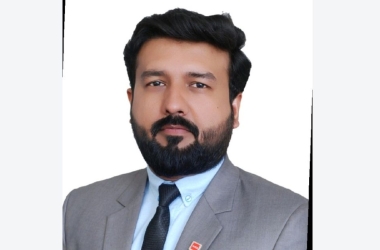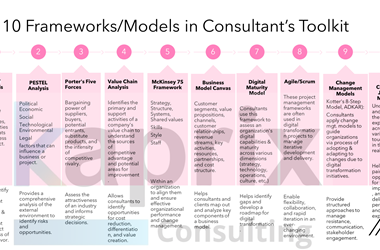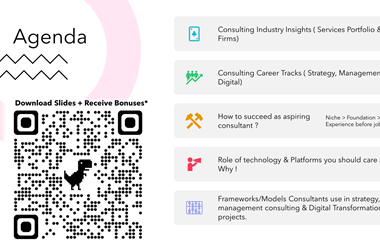Coaching and Consulting Made Simple: Sohail Sarwar Shares Insights

Guest Lecture Expands Professional Horizons of MBA Students
With the goal of offering relevant insights into what a coaching and consulting career is like, experienced business coach, digital strategist and management consultant Sohail Sarwar recently delivered an online lecture to a group of Wittenborg MBA students.
During the activity, Sarwar, founder and CEO of Kaprix Consulting, discussed two distinct paths that coaching and consulting professionals can take: working as an autonomous professional versus becoming part of a top-tier consultancy firm.
“These are different things. If you want to start your business as a coach and consultant, you need to know how to attract your ideal customers, get them interested in your offer and deliver the transformation that they need. To do that, you must create a strong message and design a business model that works seamlessly between all those parts,” he emphasises.
According to Sarwar, working in coaching and consulting means selling your knowledge to others, and should not be viewed as an overcomplicated matter. He added that consultants may come from backgrounds in various areas including graphic design, copywriting, social media marketing and entrepreneurship.
“Even if you don’t have a tremendous amount of experience, you can find your ideal customers in all of these niches; they’re the people starting their businesses. I explained to the students that you don’t need to have a PhD, be the author of multiple books or spend 15 years in the industry before becoming a coach or a consultant. It’s all about packaging your knowledge and experience in a way to make it usable to solve the problems of your clients.”

Regarding the possibility of working for a top-tier consulting firm, Sarwar points out that to do that, professionals need to build their portfolios and acquire some experience. However, there are ways to achieve that even without having had a consultancy job.
“I shared some online portals maintained by consulting firms where people can build their experience, because large companies rely on talent databases. These platforms offer virtual internships, which require candidates to solve online tasks, in order to show their potential and be more competitive when it comes to getting a job.”
Sarwar also introduced students to a series of 10 frameworks that can be useful for consulting and coaching professionals, whether they are working independently or as part of a firm.
Moreover, he encouraged students to stay updated on the industry trends by following the ‘Alphabet Scheme’, where A stands for ‘Attending Industry Events’, followed by B (‘Best Practices’), C (‘Coaching’), D (‘Developing a Network’), E (‘Emerging Technologies’), F (‘Further Education as Needed’) and G (‘Growth Mindset’). The full presentation is available for download by accessing the QR Code included on the ‘Agenda’ slide (see below).
According to the guest lecturer, the session was really interactive, with the students being engaged and interested in the topic. For him, it was an opportunity to share his knowledge and vision about consulting, while helping others to succeed in this field.

“The conversation was about deciding whether consulting is right for you or not. At one point, one of the students mentioned that she didn't want to be a consultant, and we had an interesting conversation. We dug deeper into her reasons, and I realised that her concept of consulting was very complicated, when consulting doesn’t need to be complicated. I stressed that consultants don’t need to know everything under the sun; it’s about using your own knowledge and experience to help your clients to solve their problems. After that, her perspective changed, and she said that she’d like to become a consultant.”
Sarwar concludes by commenting that the insights he shared during the activity stem from his own journey, which presented him with similar questions to those posed by the students. “I was once a consultant with a top-tier consulting firm, and last year I started my own consulting practice, and so I had many of the questions students are facing. Therefore, this lecture was about what I have learned during my trajectory.”
Iranian MBA student Farahnaz Eshraghi, specialising in International Management, described the workshop as enlightening. In her view, it was an opportunity to understand the importance of adaptability in a rapidly evolving landscape as well as leveraging technology for enhanced interactions with clients. “Activities like these provide students with insights into contemporary industry practices and networking opportunities with experienced professionals. They also help to bridge theoretical knowledge with practical applications in real-world scenarios.”
WUP 06/05/2024
by Ulisses Sawczuk